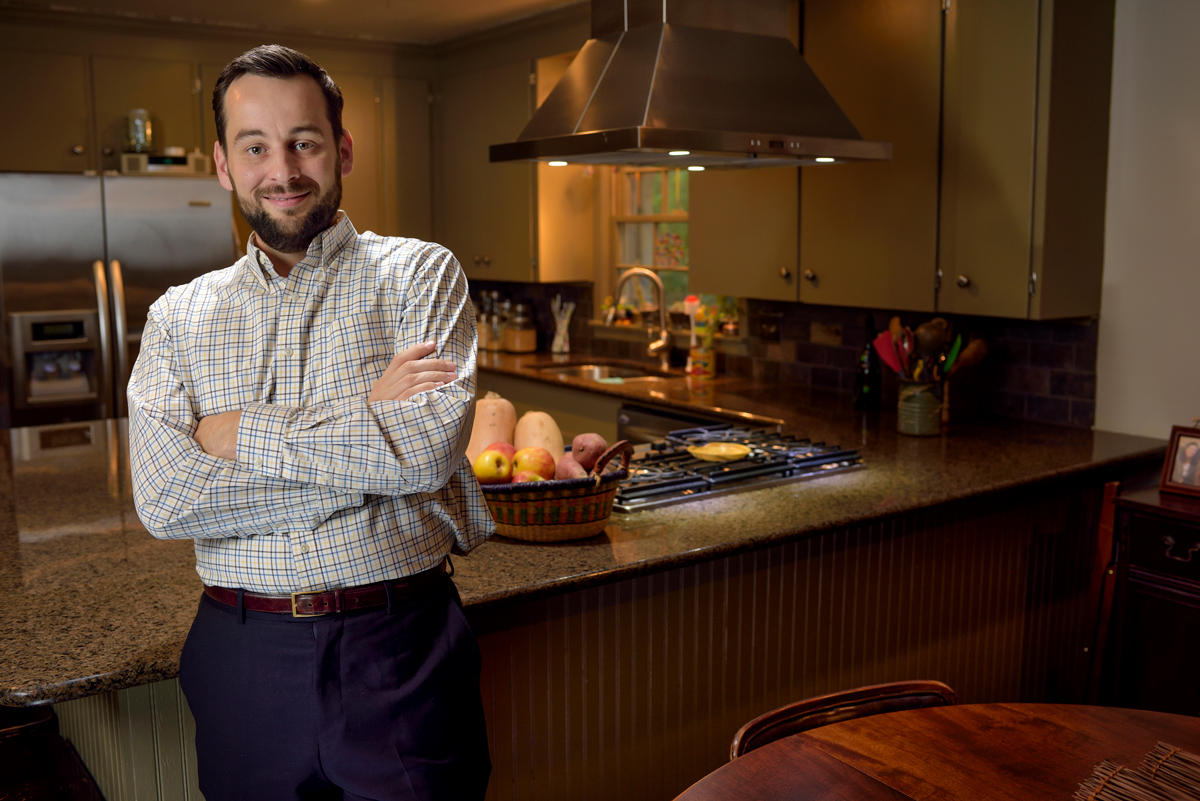
Holiday seasons often evoke memories of grandma’s house and great food. For David Buys, health specialist for the MSU Extension Service, those are the same memories that laid the foundation for his career promoting healthy choices.
Buys grew up occasionally attending Mississippi Homemaker Volunteer meetings with his grandmother and aunt in Pelahatchie and participating in Rankin County 4-H. Today, both of these Extension organizations are integrated in his work activities.
“Some of my own research has shown that patients cared for by physicians who feel a calling to medicine may experience better health outcomes,” said Buys, also an assistant professor in MSU’s Department of Food Science, Nutrition and Health Promotion. “For me—while not a physician—helping people improve their health is a calling.”
Buys’ academic and professional paths have included exploring social causes of inequality in health and disease, getting his bachelor’s degree in sociology from a Baptist college, and researching the political aspects of health concerns. After earning a master’s in sociology from Auburn University and a doctorate in medical sociology from the University of Alabama at Birmingham, along with a degree in public health from the same university, Buys found the perfect career opportunity with MSU Extension.
“I didn’t go to Mississippi State, but I got here as fast as I could,” he said with a smile.
Obesity was one of the first issues Buys attacked when he joined Extension in 2014.
“Mississippi is well known for delicious foods, not just during the holidays but all year round,” he said. “We don’t want to change that reputation, but we do want to teach people the importance of moderation and empower our people with skills needed to use healthier cooking methods.”
In addition to addressing obesity in rural areas of the state, most recently with a $5.5 million project funded by the CDC, Buys just took the reins as president of the Mississippi Public Health Association. He also has spearheaded efforts to secure grants to combat the opioid crisis in Mississippi in the last couple of years. The U.S. Department of Agriculture and the Substance Abuse and Mental Health Services Administration has awarded MSU nearly $1.5 million for statewide educational efforts.
“Opioid misuse is both a physical and a mental issue. Depression and stress tend to increase during the holidays, so our defenses should increase as well,” he said. “First, we want people to realize the dangers of keeping unused opioids around the house. Additionally, we want people to address the underlying issues that cause them to turn to opioids to mask other problems.”
Buys said his job is to make sure people remember healthy choices, no matter what holidays or other events are taking place.
“There’s no place I’d rather be doing this important work than right here at home, in Mississippi,” he said.